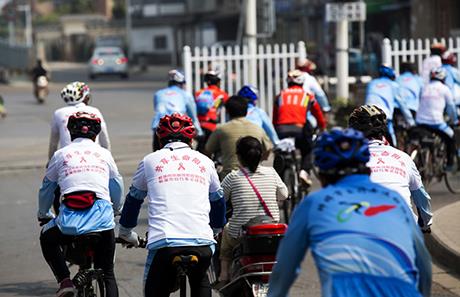The World Health Organization (WHO) and the Joint United Nations Programme on HIV/AIDS (UNAIDS) have been informed of the suspected leak of confidential information about people living with HIV in China over the last week.
Chinese health and public security authorities are investigating what appears to be a serious case of fraud, where people posing as government officials contacted people living with HIV and promised they would be provided with financial allowances in exchange for their banking information. Health authorities are also investigating how patient information systems were breached and the personal details of people living with HIV were accessed.
The confidentiality of the personal and health information of anyone seeking HIV or other medical services must be safeguarded. The right to confidentiality of personal information is especially important in the HIV response – because fear of lack of confidentiality can deter people from getting tested for HIV and from accessing both HIV treatment and prevention services.
The leak of personal information of people living with HIV is a violation of this fundamental right to patient confidentiality.
WHO and UNAIDS welcome the Chinese health authorities’ and Community Based Organizations’ swift response to this incident – including the investigations currently underway into the alleged fraudulent activity which appears to have occurred, as well as the information security breach which enabled information about people living with HIV to be accessed by people without authority to do so.
WHO and UNAIDS also welcomes the National Health and Family Planning Commission’s (NHFPC’s) and China Centre for Disease Control and Prevention’s (CDC’s) commitment to strengthening HIV-related information security. WHO and UNAIDS agree that it is crucially important to strengthen existing systems so that this kind of breach does not occur again. Security of personal and health information of people living with HIV is crucial for an effective HIV response at every stage of the HIV response: from surveillance, prevention, testing, and treatment, to the provision of other care and support services.
WHO and UNAIDS stand ready to provide any support necessary to Chinese government health authorities and civil society groups in responding to this incident, and in the implementation of subsequent remedies to strengthen HIV-related health information security in light of this incident.

About the World Health Organization
WHO is the directing and coordinating authority for health within the United Nations system. It is responsible for providing leadership on global health matters, shaping the health research agenda, setting norms and standards, articulating evidence-based policy options, providing technical support to countries and monitoring and assessing health trends.
About the Joint United Nations Programme on HIV/AIDS (UNAIDS)
The Joint United Nations Programme on HIV/AIDS (UNAIDS) leads and inspires the world to achieve its shared vision of zero new HIV infections, zero discrimination and zero AIDS-related deaths. UNAIDS unites the efforts of 11 UN organizations—UNHCR, UNICEF, WFP, UNDP, UNFPA, UNODC, UN Women, ILO, UNESCO, WHO and the World Bank—and works closely with global and national partners towards ending the AIDS epidemic by 2030 as part of the Sustainable Development Goals. Learn more at unaids.org and connect with us on Facebook, Twitter, Instagram and YouTube.
